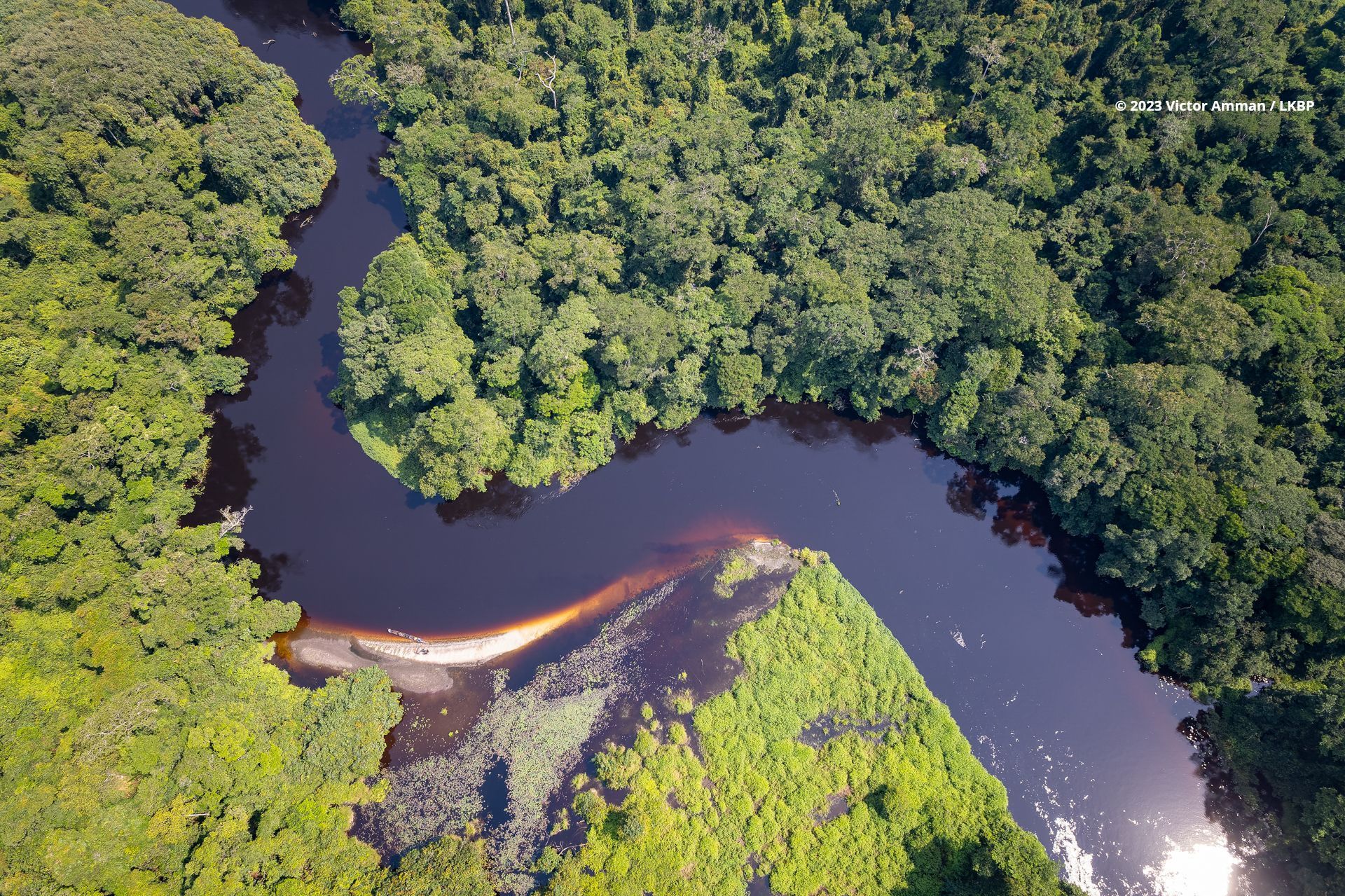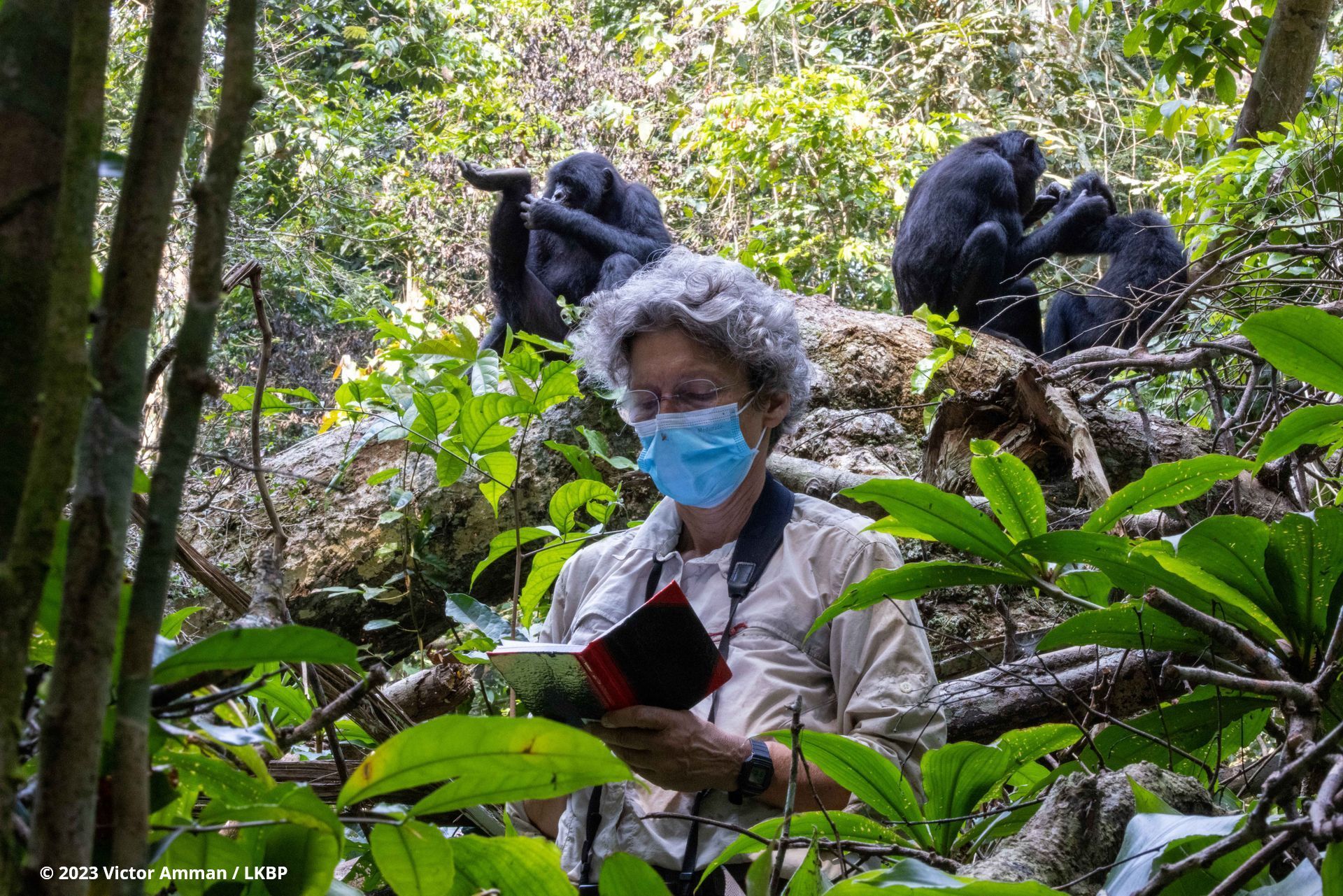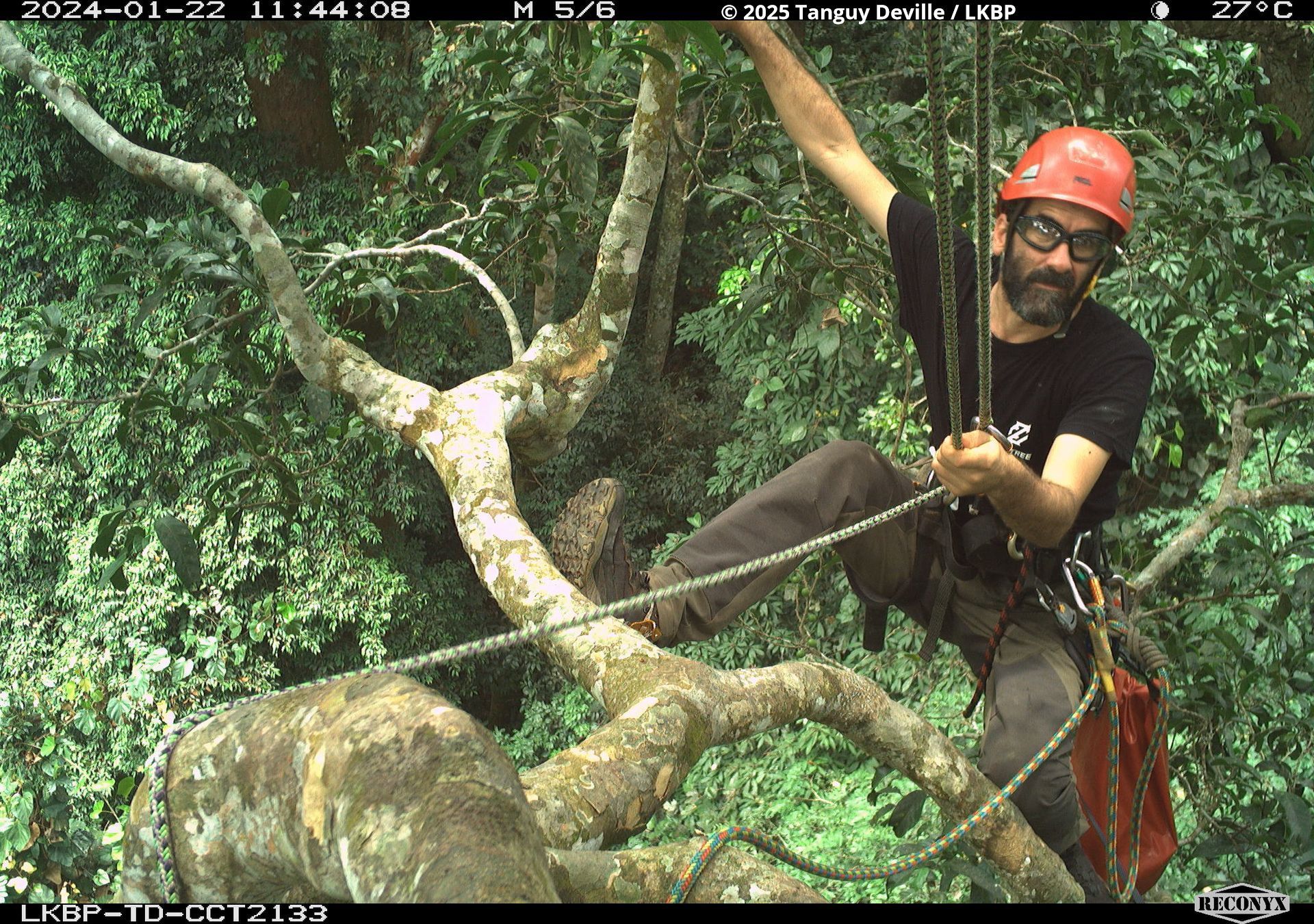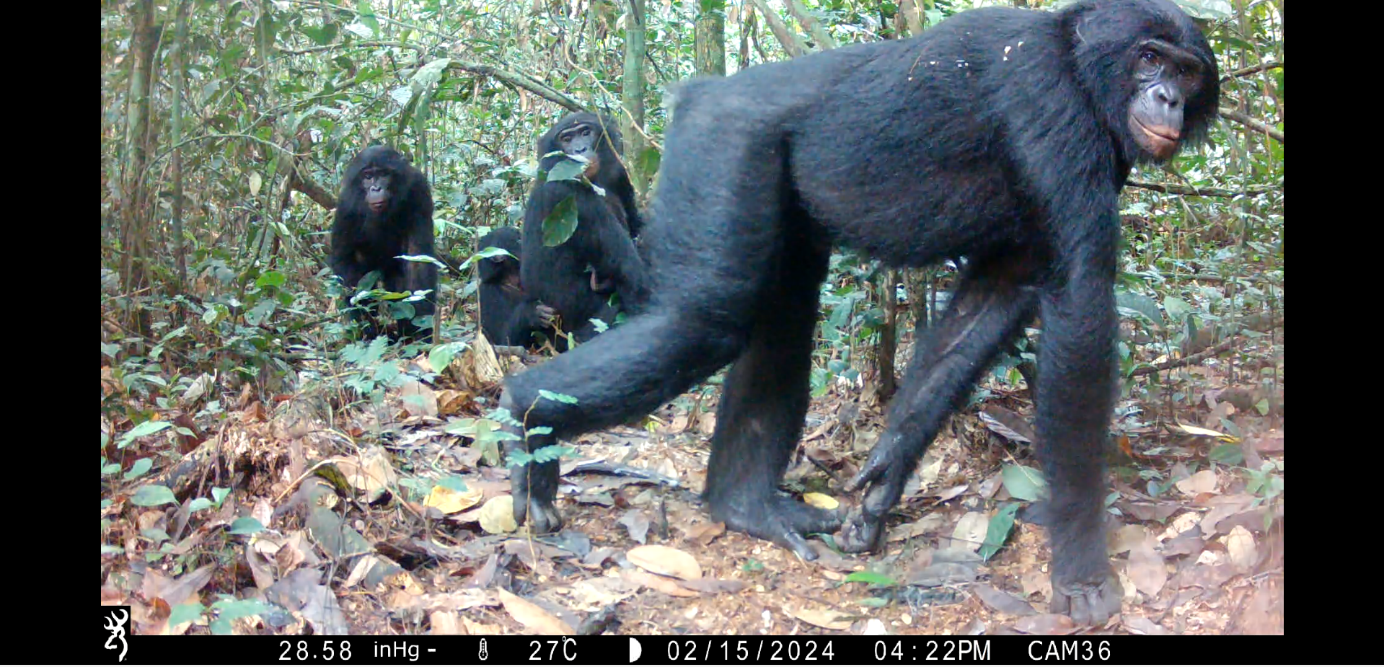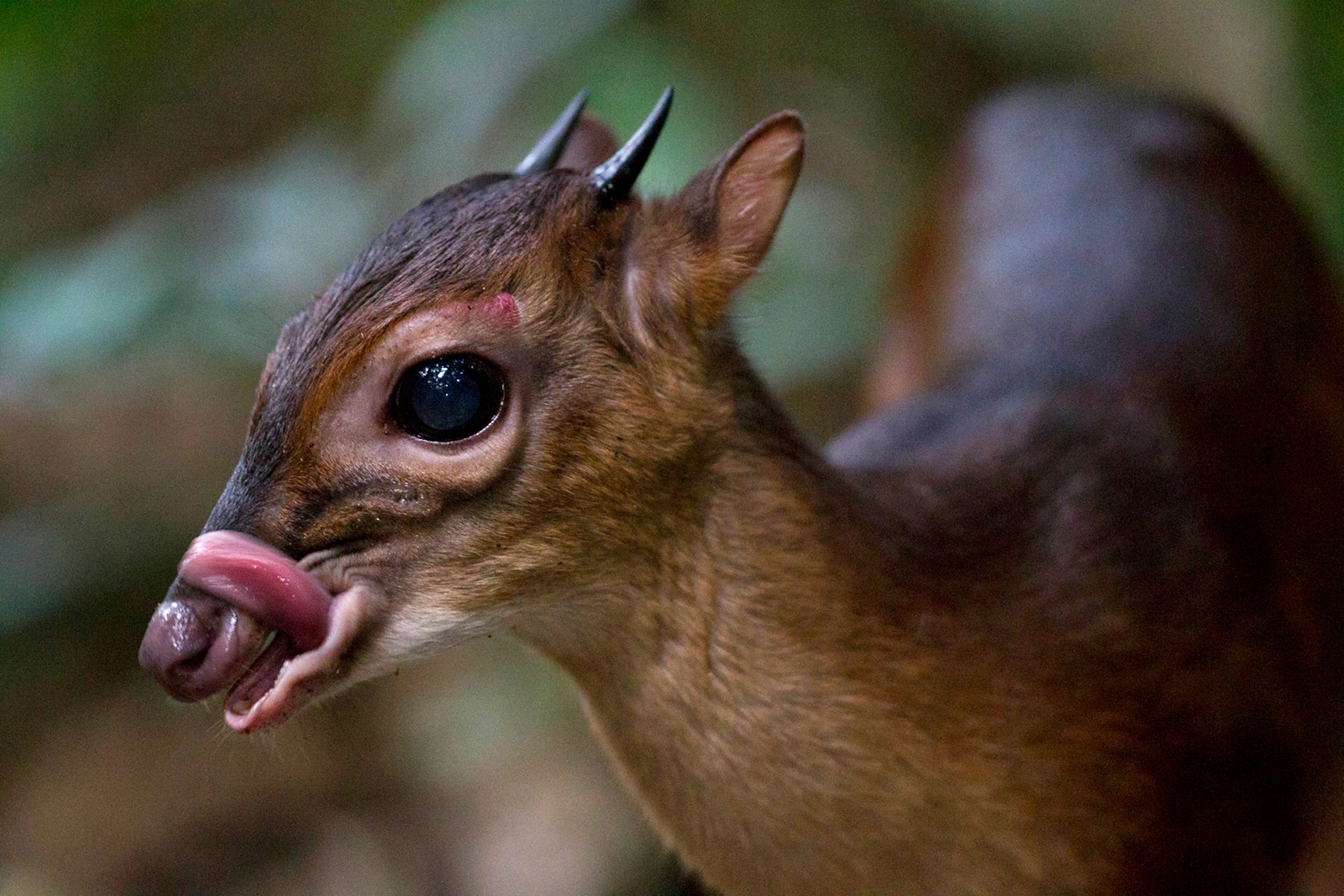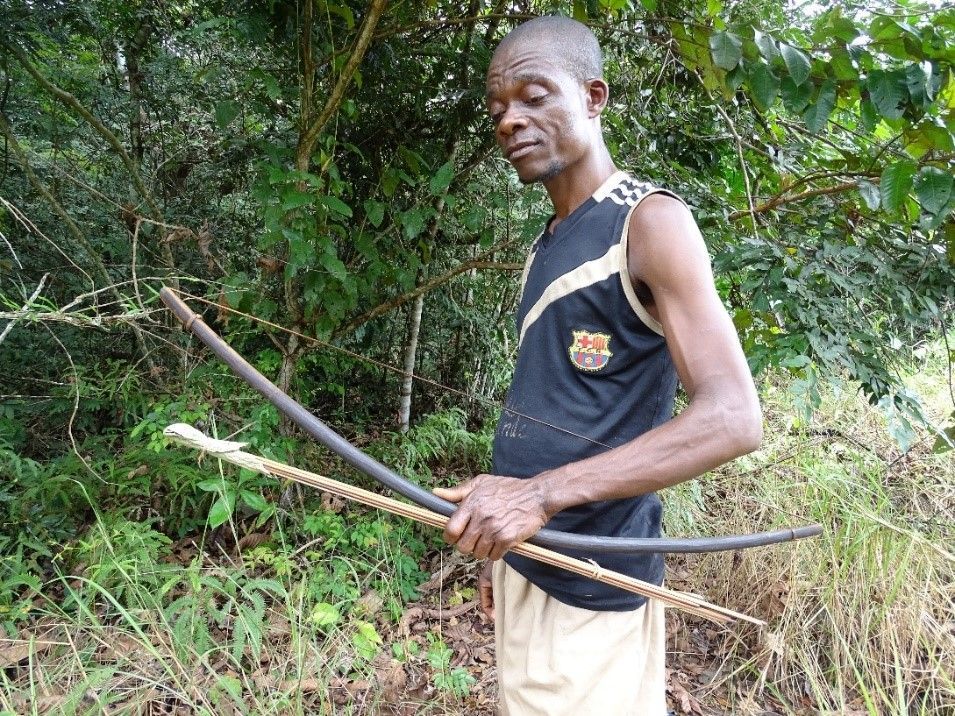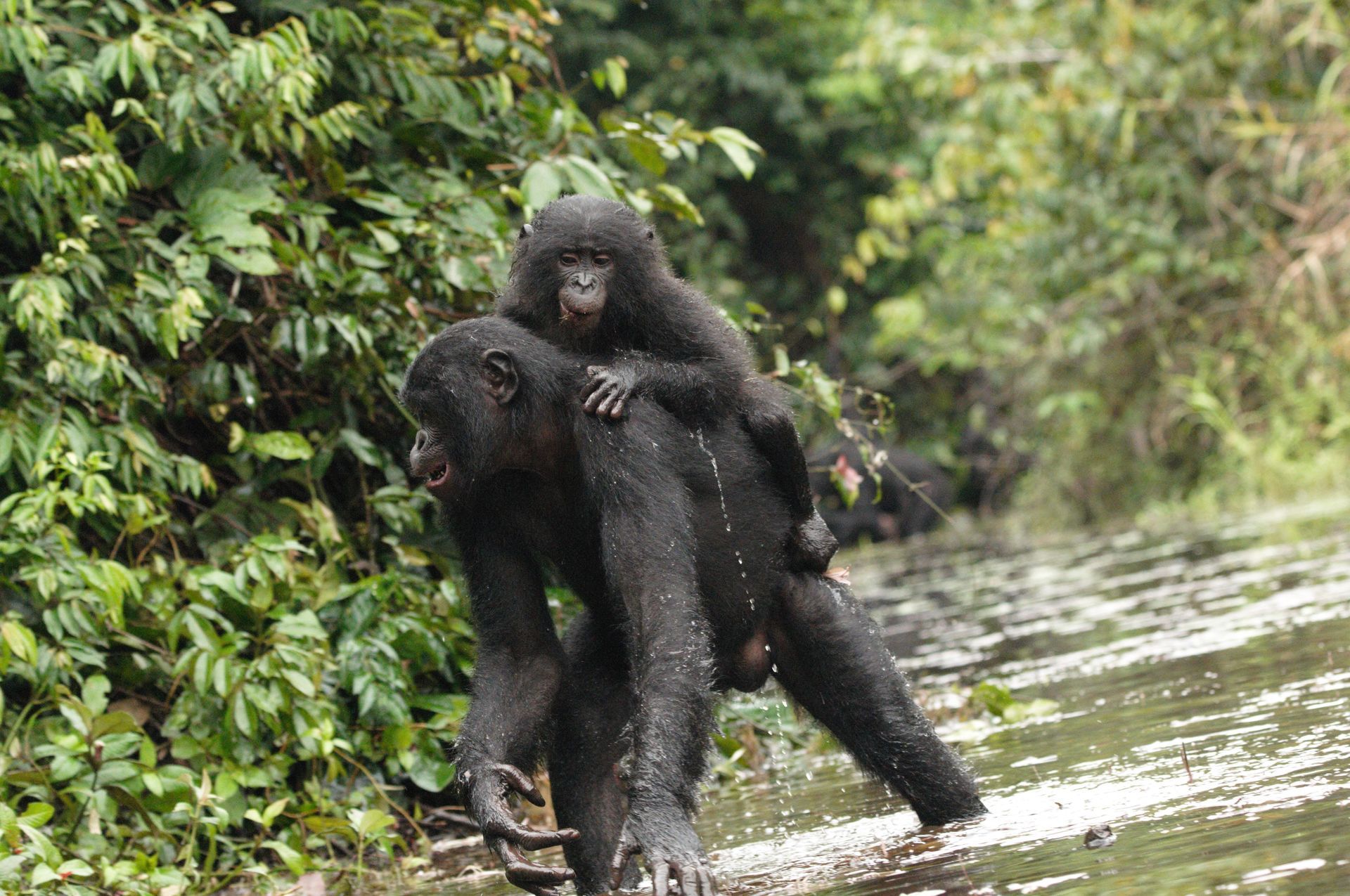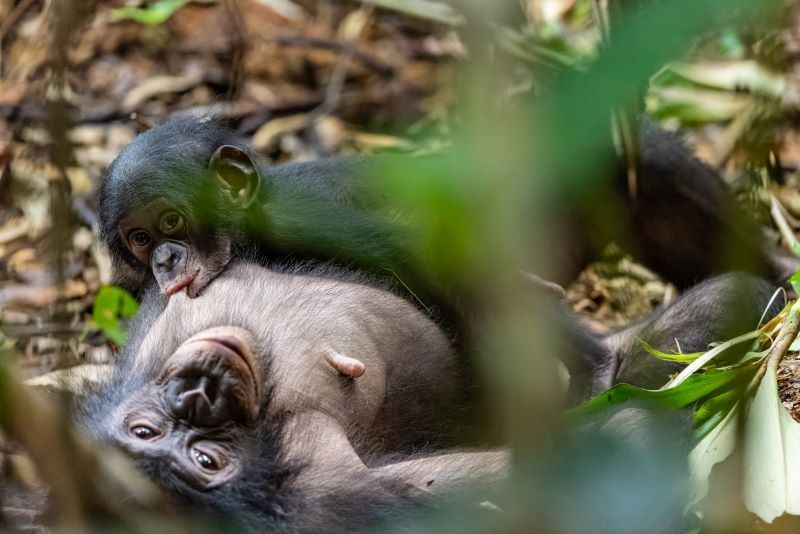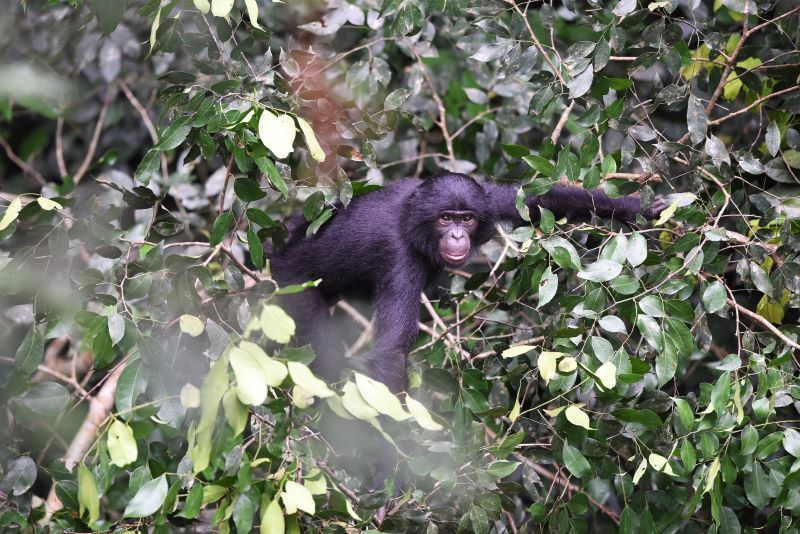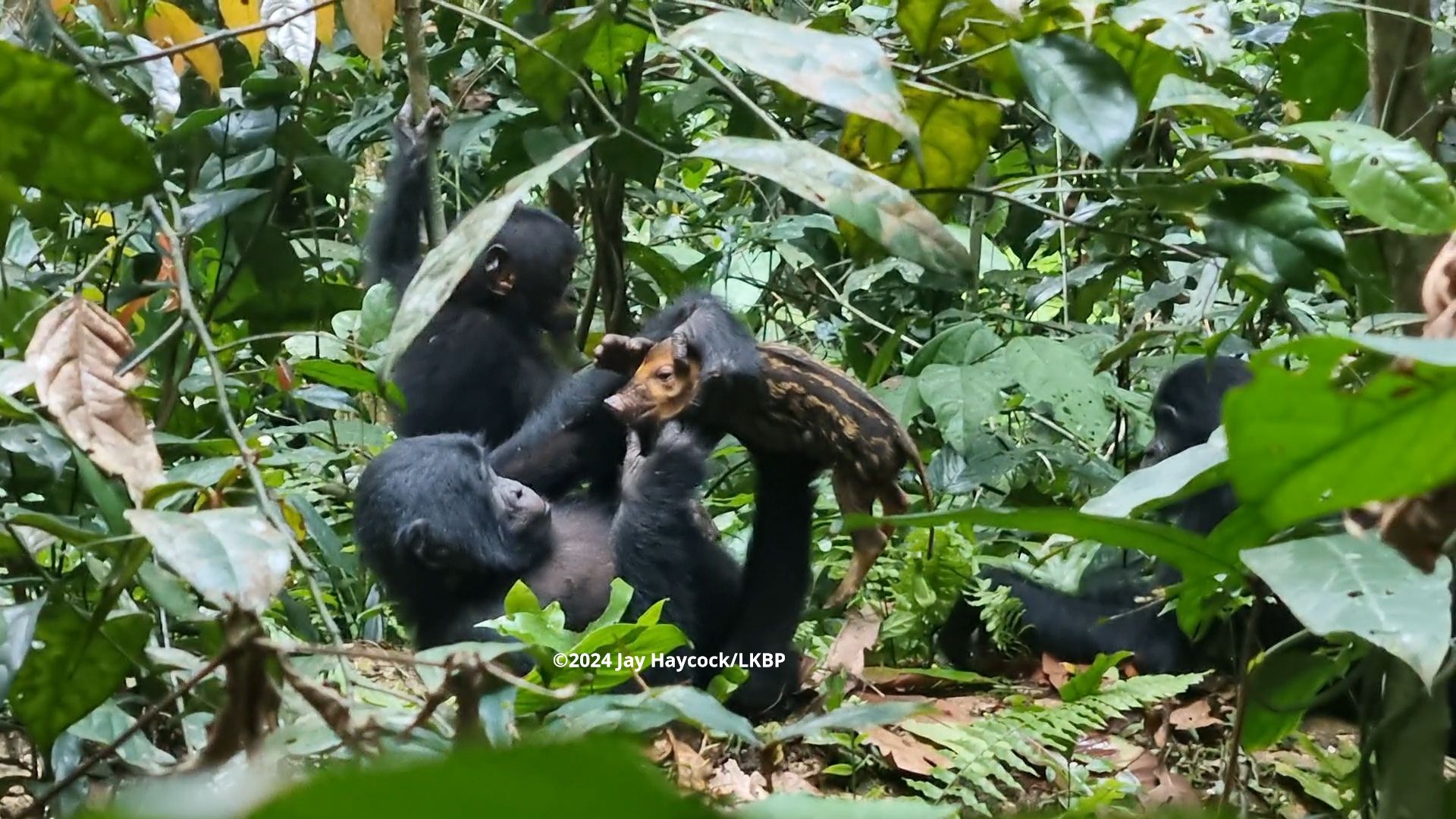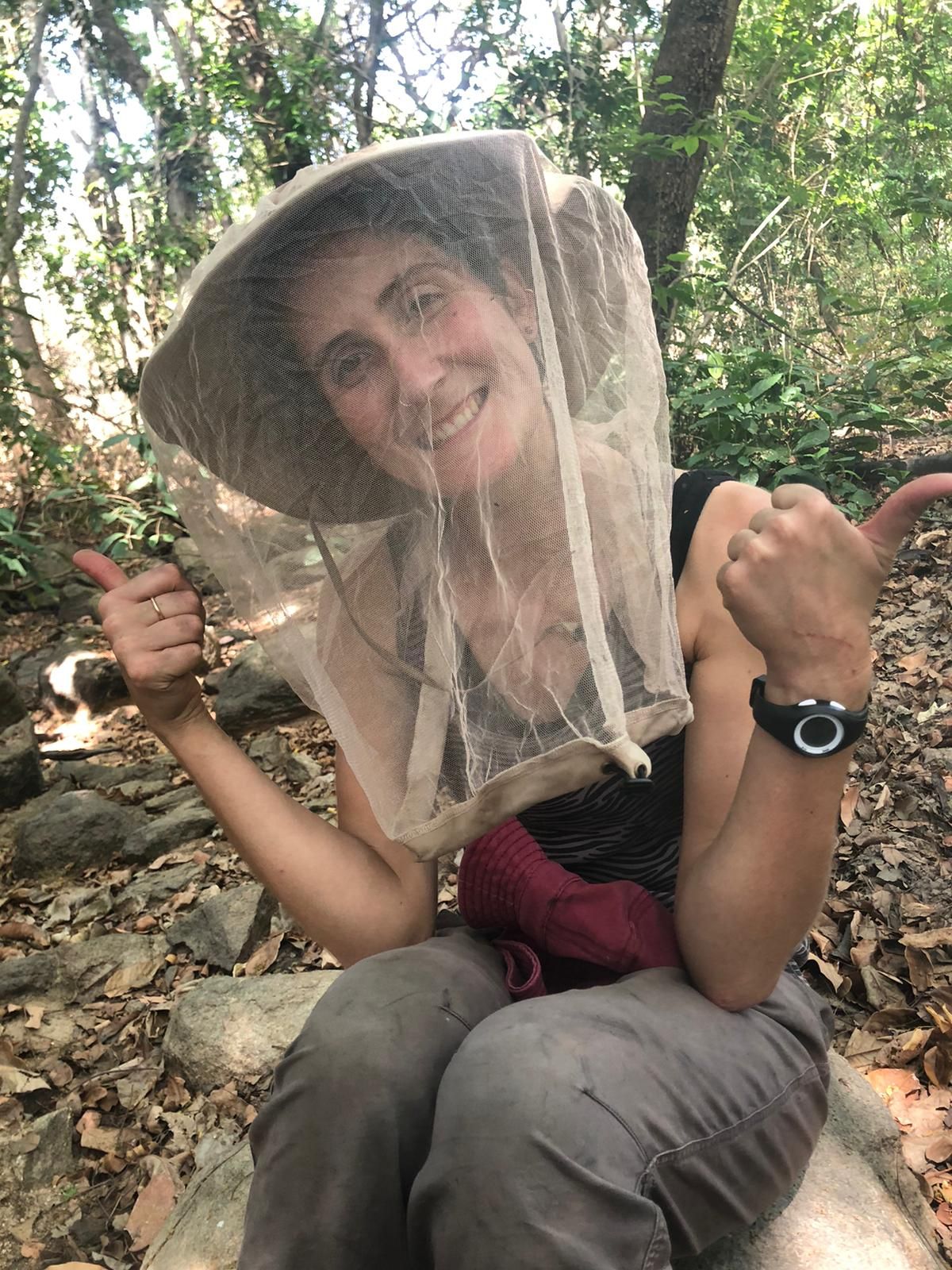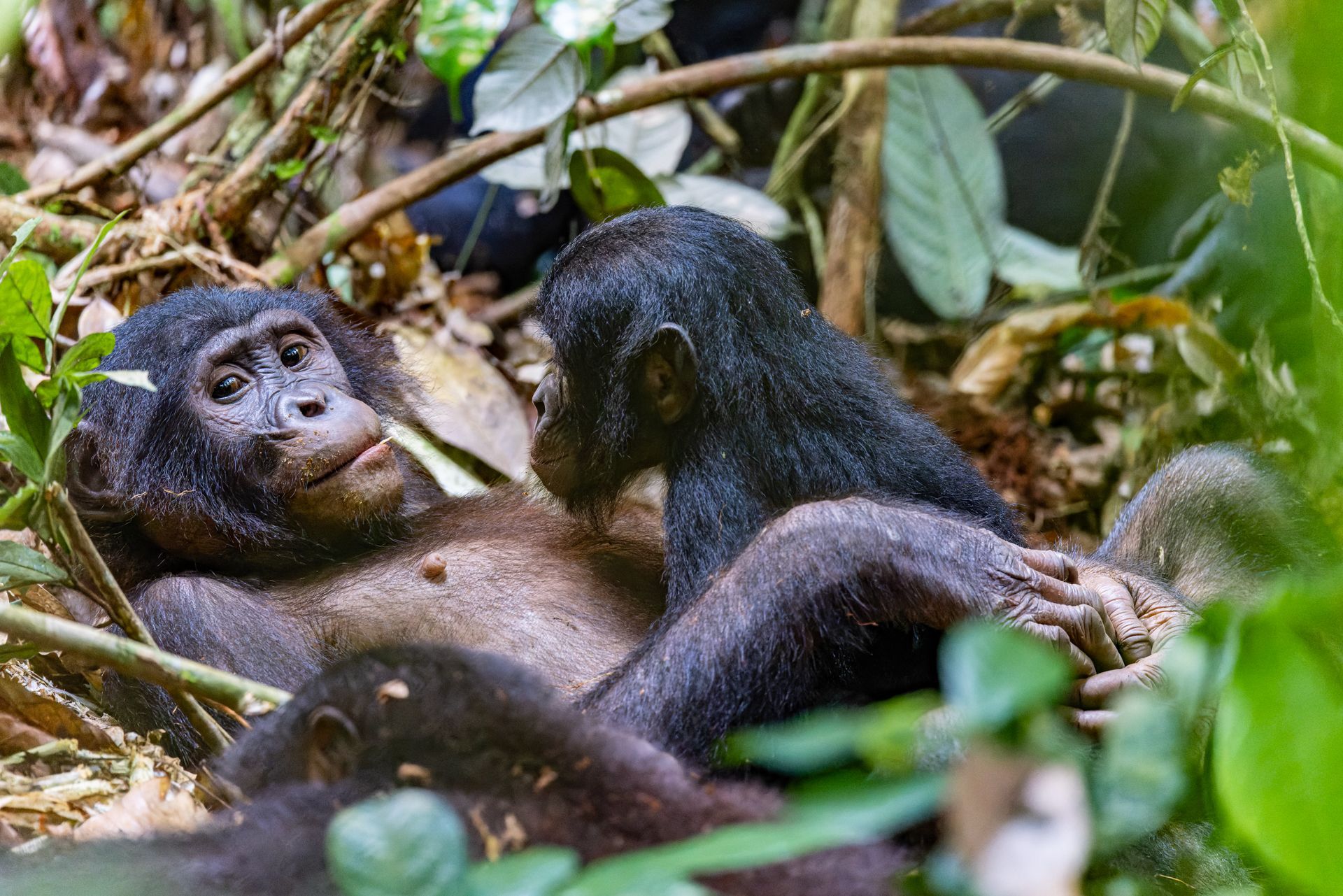Mama Espe brings hunters and researchers to the same table

Mama Espe bringt Jäger und Forscher an einen Tisch
Es ist 14 Uhr, das Dorf Nganda brütet in der Mittagshitze. Der Vorplatz der Krankenstation liegt im Schatten von Brotbäumen und Ölpalmen. Ein guter Ort, um den Studenten, die vor wenigen Tagen aus der Hauptstadt Kinshasa gekommen sind, die ersten Lektionen zur Arbeit unter Feldbedingungen zu erteilen. Vor der Abreise haben sie einen Crashkurs in Sachen Datenaufnahme erhalten; jetzt geht es um die Details. Mama Espe erklärt, worauf es in den kommenden Wochen und Monaten ankommt. Ihr voller Name ist Espérance Miezi Vuvu, für die Dorfbewohner am Rande des Salonga bleibt es jedoch bei der vertraulichen und gleichzeitig respektvollen Bezeichnung. Mama Espe hat schon früher im LuiKotale Bonobo Projekt gearbeitet. Sie war Camp Assistentin, hat die Frauen im Dorf zur Nutzung von Heilpflanzen befragt, Tropenmedizinern assistiert und gedolmetscht. Dann gab es eine längere Pause, in der sie sich um Familienangelegenheiten kümmern musste. Seit Mai ist sie wieder in den Dörfern am Rande des Salonga unterwegs, diesmal als Koordinatorin für ein Forschungsprojekt, zu dem sich die Universitäten in Kinshasa und Konstanz, sowie das MPI für Verhaltensforschung zusammengetan haben. Ziel der Recherche ist es, anhand genauer Angaben festzustellen, welche Mengen an Fleisch und Fisch jeden Tag in den verschiedenen Dörfern ankommen, nach welchen Regeln die Verteilung der Nahrungsgüter erfolgt, und ob die Ressourcen der umliegenden Wälder ausreichen, um den Eigenbedarf zu decken. Können die Dorfbewohner weiterhin so wirtschaften wie bisher, oder gefährden Jagd und Fischfang die Lebensgrundlage zukünftiger Generationen? Esperance hat lange in Kinshasa gelebt, kennt aber auch die Probleme, mit denen die Bewohner der Urwalddörfer tagtäglich zu kämpfen haben. Nach dem Diplom hat sie in verschiedenen Naturschutzprojekten gearbeitet und weiß um die Bedeutung, die der kongolesische Regenwald für das globale Klima und die Artenvielfalt hat. Mit seinen 1,7 Millionen km2 tropischem Regenwald und den Wassermassen der unzähligen Flüsse, ist die Demokratische Republik Kongo ein besonders wichtiger Partner im weltweiten Ringen gegen Klimawandel und Artenschwund. Während die Wälder am Amazonas inzwischen mehr CO2 abgeben als sie aufnehmen, ist die Bilanz im Kongobecken weiterhin positiv. Für die internationalen Umweltorganisationen hat der Schutz des Kongobeckens deshalb höchste Priorität und die Budgets, die dafür aufgewendet werden sollen, sind beachtlich. Umweltschutz ist im Kongo längst ein Politikum und könnte bald zu einem führenden Wirtschaftsfaktor werden. Esperance hat sich bei all dem einen pragmatischen Blick bewahrt und wenn sie mit den Leuten im Dorf zusammensitzt, dann leistet sie diplomatische Dienste. Ihr Mantra lautet: Natur- und Artenschutz sind mit den Bedürfnissen der Dorfbewohner durchaus vereinbar und das Bemühen, den Wald vor der eigenen Haustür zu erhalten, hat das Zeug, zu einem Geschäftsmodell zu werden.
Mama Espe brings hunters and researchers to the same table
It's 2 pm, the air above the village of Nganda flickers in the midday heat. The courtyard of the infirmary is shaded by bread trees and oil palms, the right place to give the students who arrived from the capital Kinshasa a few days ago a first lesson on working under field conditions. Before leaving, they received a crash course on data acquisition; now it's about the details. Mama Espe explains what matters in the coming weeks and months. Her full name is Espérance Miezi Vuvu, but the village people stick to the familiar and respectful nickname. Mama Espe has worked in the LuiKotale Bonobo project before. She was camp assistant, interviewed the women in the village about their use of medicinal plants, assisted a team of tropical doctors and served as interpreter. There was a longer break when she had to take care of family matters. Since May this year, she is touring again through the villages of the Bolongo area outside Salonga National Park. This time as coordinator of a research project involving the Universities of Kinshasa and Konstanz (Germany), as well as the Max-Planck-Institute of Animal Behavior. The goal of the project is to determine the amount of meat and fish arriving in the different villages each day, the rules governing the distribution of food items among villagers, and to what extend these forest resources are sufficient to meet the needs of the village community. Can villagers continue to exploit the forests in the current way or does hunting and fishing compromise the livelihoods of future generations? Esperance has lived in Kinshasa for a long time, but is also familiar with the daily challenges experienced by villagers. After graduating, she has worked in various conservation projects and is aware of the importance that the Congolese rainforest has for the global climate and biodiversity.
With 1.7 million km2 of rainforest and an incredible amount of water draining the basin, the Democratic Republic of Congo is a particularly important player in the global fight against climate change and species loss. While the forests of the Amazon basin emit more CO2 than they absorb, the Congo Basin maintains a positive balance and serves an important function for the global climate. Accordingly, the protection of the Congo Basin has top priority for international environmental organizations and the budgets that have been announced to be spent for preserving the mega-landscape are impressive. Environmental protection has long been a political issue in DR Congo and conservation could soon become an important economic factor. Esperance keeps a pragmatic eye on all this. When sitting together with the village people, her mantra is that (i) nature conservation is perfectly compatible with the needs of the villagers, and (ii) the effort to preserve forests and their flora and fauna has the potential to become a business model.
Neuer Text
